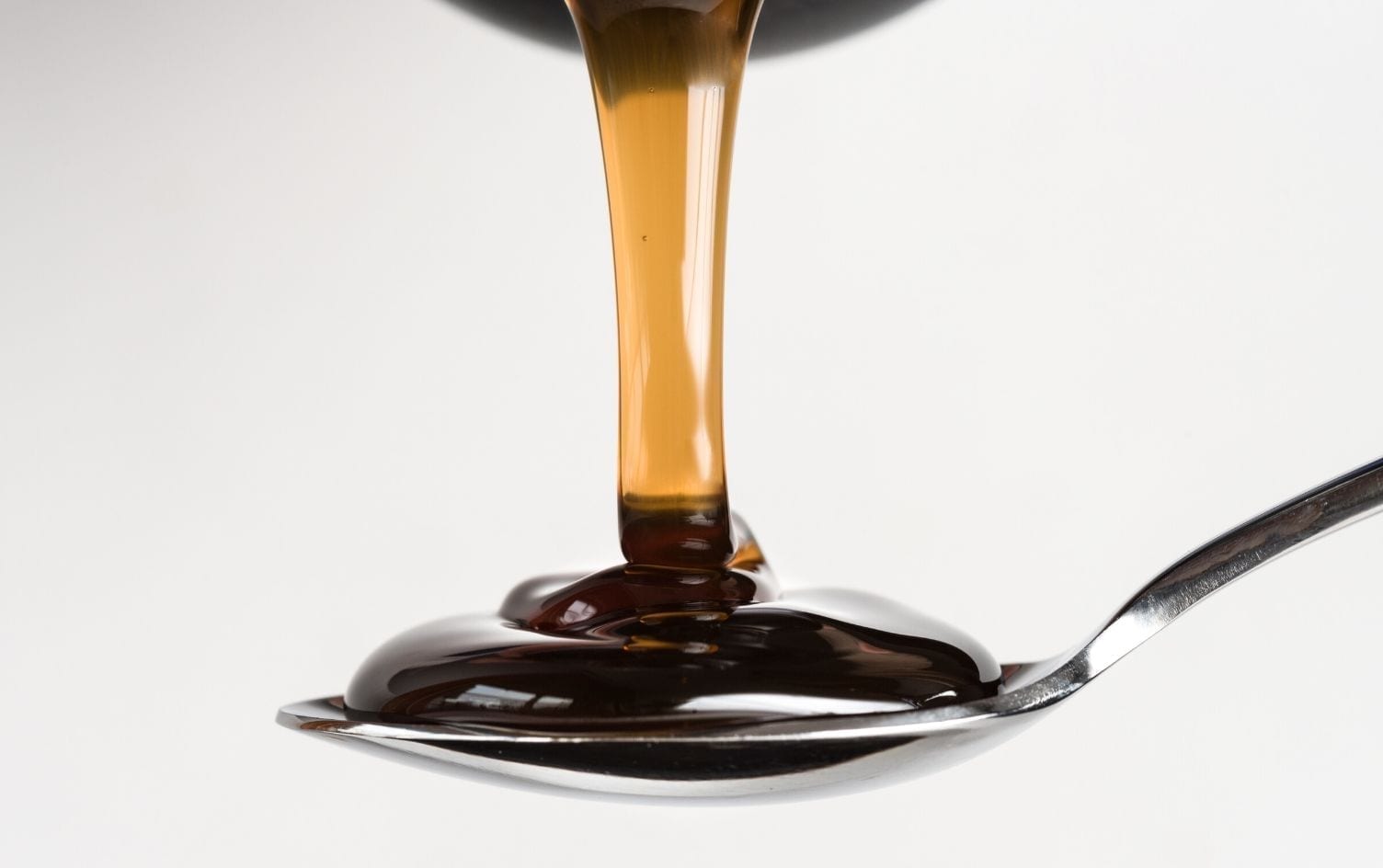If you’re trying to improve your health, one place to start is cutting back on added sugar. Consuming too much added sugar has been linked to diabetes, heart disease, an increased risk of depression and more. One type of sugar that is often maligned is high fructose corn syrup (HFCS), a sweetener derived from corn syrup, both processed from corn. While both are forms of added sugar, they have elemental differences.
IS HIGH FRUCTOSE CORN SYRUP NUTRITIONALLY “WORSE” THAN CORN SYRUP?
All forms of sugar have 4 calories per gram, including both high fructose corn syrup and regular corn syrup. Those 4 calories per gram are considered empty calories, which provide no additional nutritional value. Thus, nutritionally speaking, both are forms of added sugar, where no one variety is “better” or “worse” than the other. This is true for all types of added sugar — whether it be coconut sugar, maple syrup, honey, juice concentrate, brown sugar, etc.
THE CHEMICAL DIFFERENCE BETWEEN THE TWO
Both corn syrup and high fructose corn syrup are made from corn starch. Chemically speaking, corn syrup is 100% glucose. High fructose corn syrup, however, involves a chemically engineered process that enzymatically turns some of the glucose into fructose (hence the name, high fructose corn syrup). High fructose corn syrup is highly processed and significantly cheaper for food manufacturers. It also increases the shelf-life of foods, which is the main reason you typically find it in all sorts of processed packaged foods and most notably in soda.
GLUCOSE VERSUS FRUCTOSE
Where things get confusing on the “better or worse” front is in the fact our bodies metabolize glucose and fructose differently. Glucose is metabolized by several organs (including muscles, fat tissue, the brain and the liver) and directly affects blood sugar and insulin levels. Fructose is only metabolized by the liver and does not have a direct effect on insulin secretion. It does, however, have a more significant impact on triglyceride levels and lipogenesis (the conversion of glucose to fat in the body). Research conducted by Harvard Medical School shows high levels of fructose may influence the hormones that control our appetites, increasing production of hunger-signaling hormones and suppressing those that make us feel full, which could lead to overeating and weight gain.
THE RESEARCH
Still, the research on the long-term effects of high fructose corn syrup is mixed and highly controversial. Some studies clearly state high fructose corn syrup and sugar have similar, indistinguishable health consequences, while other studies and health professionals heartily defend a more detrimental impact directly from high fructose corn syrup.
What’s more, most food packaging claims, food advertising and food marketing efforts lead you to believe high fructose corn syrup is far worse for you than most other forms of sugar. Many of these companies are removing high fructose corn syrup from their products and replacing it with other forms of added sugar to appease consumers and increase sales.
THE BOTTOM LINE
Almost all of us are eating too much sugar, in all forms. The average American consumes 31 teaspoons of added sugar daily, triple the upper limit recommended by the American Heart Association.
Ultimately, no form of added sugar is good for you since it provides empty calories. Instead, try to limit processed foods that contain added sugar and enjoy more whole foods like vegetables and fruit, that contain natural sugar along with important nutrients like fiber, vitamins and minerals.




